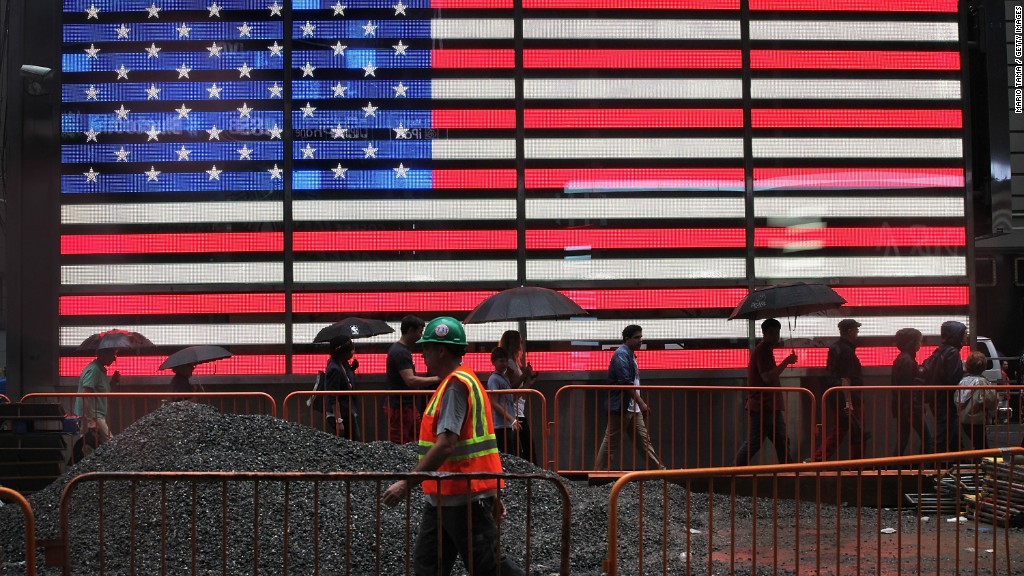
Clarity is a rare commodity at the Federal Reserve lately.
We hoped that the August jobs report would provide a clear signal on the strength of the economy before the U.S. central bank meets in less than two weeks and decides whether it will raise its key interest rate.
But the mixed signals from Friday's jobs report has only clouded the picture more.
"A mixed report on the health of the U.S. labor market gives frustratingly little new insight into whether the Fed will start to hike rates," says Chris Williamson, chief economist at Markit.
The U.S. economy added 173,000 jobs in August. While that's not weak by any gauge, it's below the "strong and steady" threshold of 200,000 jobs and lower than the average 212,000 jobs a month that America has added this year.
The uncertainty immediately filtered through the stock market -- the Dow fell 272 points, and the S&P 500 and Nasdaq were also in the red. All the indexes turned lower for the year.
Related: U.S. unemployment hits 5.1% lowest since 2008
The unemployment rate hit its lowest point (5.1%) in seven years. But August wasn't a "wow" month.
Wage growth (2.2%) surpassed expectations, but it's well below the Fed's target of 3.5%. And the labor force participation rate hasn't budged in three months.
The Fed is also likely to be concerned about recent global market activity.
China's economy is losing momentum, which has triggered a slowdown in several countries. Global markets have been extremely volatile in August, with stock markets in nine countries falling into bear market territory.
Related: China is putting the Fed in a tough spot
The Fed has a two-day meeting starting in 12 days on Sept. 16-17, and the rate hike decision seems to be coming down to the wire.
"This puts the Fed in an awkward position. Given how volatile markets are right now, I don't think the Fed will raise rates in September," says Bo Christensen, chief analyst with Danske Capital in Copenhagen.
Others disagree.
"We continue to call for a September lift-off," says Doug Duncan, chief economist at Fannie Mae.
Make no mistake: a rate hike would be a big deal. It would raise the cost of business for companies, and increase rates on future home mortgages, car loans and bank savings accounts.
Related: Is the Fed trapped now? Rate hike remains elusive
A rate hike would also be a sign of a healthy U.S. economy and the first one in almost a decade. Rates were put at zero in December 2008 to help reboot the economy during the recession.
While the pace of future rate hikes is more important than the starting point, the first rate hike has been highly anticipated.
The Fed's actions could also cause more volatility in financial markets, which is of concern. New York Fed president William Dudley said in late August that the market's recent volatility made a September rate hike "less compelling."
Other Fed officials still say it's too early to decide on a September rate hike. It appears the drum roll could go up right until the Fed holds a press conference on Sept. 17 and announces its decision.
"The odds that the Fed will raise interest rates this month are still close to 50-50," says Paul Ashworth, chief U.S. economist at Capital Economics.


